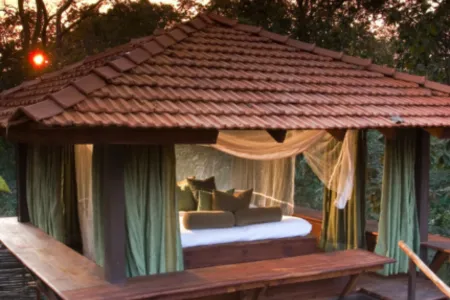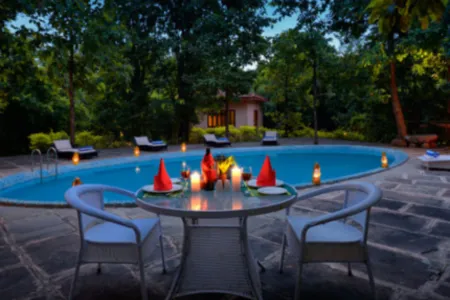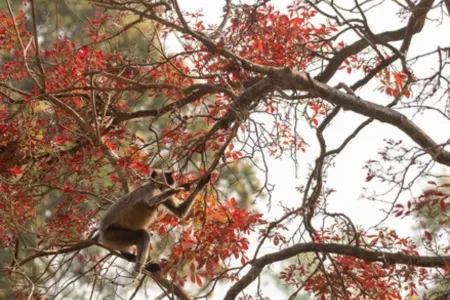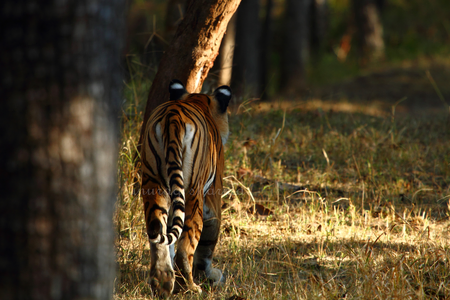In the heart of India, Madhya Pradesh, Pench National Park is located in the districts of Seoni and Chhindwara, is one of the premier tiger reserves of India, and the first one to straddle across two states – Madhya Pradesh and Maharashtra. Ordinarily, the reference to Pench is mostly to the tiger reserve in Madhya Pradesh.
Named after the pristine River Pench which flows through the park, Pench National Park is one of the most popular wildlife reserves in India. Known for its lush teak forest, open grasslands and stunning landscapes that inspired Rudyard Kipling’s ‘ The Jungle Book’, the park is one of the major Protected Areas of the Satpura-Maikal ranges of the central highlands, which is among the most important tiger habitats of the world. Pench Tiger Reserve covers an area of 1179 sq km out of which, the core area is 411.33 sq km and the buffer area is 768 sq km. Currently, Pench is home to approximately 80 tigers on the Madhya Pradesh side and another 50 odd tigers on the Maharashtra side.
The carnivore fauna includes the tiger, leopard, dhole, jungle cat, and small Indian civet. Wolves occur on the fringes and outside the reserve limits. Striped hyena, sloth bear, golden jackal, and common palm civets make up the rest of the carnivore fauna.
Chital, sambar, gaur, nilgai, wild pig, Indian muntjac and chowsingha, are the wild ungulate species found in the area. With the distribution of water governing their movement patterns to a great extent, gaur migrate down from the hills during the dry season occupy the forests along the Pench River and other sources of water, and migrate back to the hill forests during the monsoon. Nilgai is found mostly in a few open areas, along forest roads, scrub jungles and fringe areas of the reserve. Chowsingha are more localized to the greatly undulating area of the reserve. Barking deer are seen infrequently in moist riverine stretches. Chinkara is infrequently seen on the open areas bordering the buffer zones of the reserve.
Pench Tiger Reserve forms part of the crucial Central Indian Tiger Landscape, with wildlife corridors connecting it to Kanha Tiger Reserve to the north and Nagzira-Navegaon Tiger Reserve to the south. These corridors are vital for the movement of tigers and other species, ensuring genetic diversity and long-term survival.
Safari at Pench National Park
Pench National Park offers two types of Jeep Safaris.
Regular Jeep Safaris: Regular Jeep Safaris are conducted twice daily- morning and evening. The morning safari starts around 6 AM ( changes with season depending on sunrise) and lasts for up to 4.30- 5 hours. Packed breakfast is provided to guests going on morning safari which can be eaten at a designated area inside the park during safari hours. The duration of the evening safari is 3.00- 3.30 hours again depending on sunset.
One can also opt for a night safari in the buffer zone of Pench National Park, the duration of a night safari is roughly 3 hours.
Full-day Safari at Pench: A full-day Jeep safari provides zone-free and route-free access to visitors across the tourism zone of the National Park. Visitors are allowed to enter 15-20 minutes before other vehicles and are also allowed to exit the national park 15-20 minutes after the designated time slot for regular jeep safaris. This format is very popular with wildlife photographers and filmmakers as it provides flexibility in terms of time window and also access.








